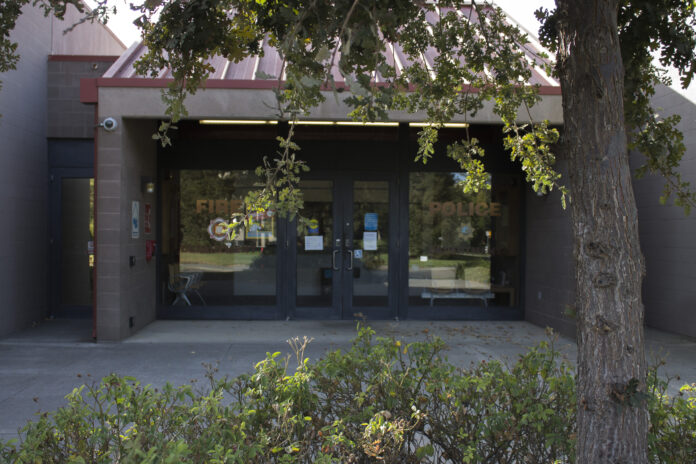The software program ‘Detect’ scans social media posts for threats of violence and has potential to monitor student protests.
By LA RISSA VASQUEZ — campus@theaggie.org
On Oct. 19, the UC Davis Police Department (UCDPD) released a statement confirming that it is using the software program ‘Detect’ to conduct “threat monitoring” of students’ social media accounts. In the official statement, the UCDPD stated its intentions with the software.
“The UC Davis Police Department (UCDPD) uses a product called Detect (formerly Social Sentinel) to monitor publicly-available content on social media and websites for timely insights into such threats to our community,” the statement reads.
Joanne Zekany, a UCDPD lieutenant, said the program allows a select few members of UCDPD to discern genuine threats to individual and community safety.
“The software carries out searches based on keywords we supply,” Zekany said. “The goal of these searches is to find signs that someone is at risk of harming themselves or others. Using this software allows us to scan the many thousands of social media posts from our community for a few that are of genuine concern.”
On Oct. 27, 2020, Social Sentinel, a language-learning AI-based software designed to recognize signs of impending violence in organization-owned emails and public social media posts, was bought by Navigate360 and rebranded as Detect. According to the Navigate360 website, they are an umbrella company that acquires software and technology to monitor online activity in schools, workplaces and other public institutions.
According to Zekany, UCDPD has been using the scanning software since 2015.
“Students should understand that this system can only look at public postings that are visible to any internet user,” Zekany said. “It cannot look at closed or private groups or pages, direct messages or private chats or email.”
The UCDPD Policy Manual does not provide any information on training or procedures that are used to ensure department transparency of the 24-hour automated coverage Detect provides.
The Oct. 19 release stated, “If an alert is sufficiently concerning, UCDPD would work with the social media platform or website involved to take any further action.”
In an investigation published last month by the Dallas Morning News, it was found that Detect marketed its services as a way of “mitigating” or “forestalling” student protests. Across the country, 37 schools, including UCLA, the University of North Carolina at Chapel Hill and the University of Texas at Dallas, have also purchased contracts with the company to use its surveillance services.
Howard Ku, a first-year graduate student studying computer science, commented on the university’s use of Detect.
“I think [it’s] a little [stressful] if there was someone monitoring my information,” Ku said. ”There should be some limitation to their power and privilege to our data.”
Written by: La Rissa Vasquez — campus@theaggie.org




